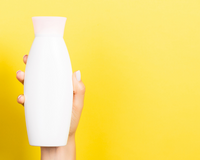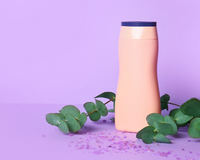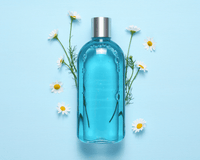Many herbal and natural oils are used for the best black hair care products. As I have known of the more uncommon and less widespread sapote, mango, and manketti oils like palm, avocado, and olive, there is a wide spectrum of natural oils that may be utilized for black hair care. Each has its own distinct traits and is quite flexible. Everyone desires gorgeous, well-groomed hair. From the outside, the look and structure of your hair influence you positively in your social life and makes you feel better. Well-groomed and clean hair sends a message from person to person.
Hair that is well-groomed and sensitive to detail boosts one's self-confidence and offers a good vibe. The first guideline of hair care is to wash your hair on a regular basis and to apply proper hair care products. You should attempt to utilize natural products as much as possible in your everyday life; natural goods will complete the care necessary for your hair at the greatest level in terms of substance.
Recommended Oils For Pre-Shampoo Hair Care Routine Fo The Best Black Hair Care Products
Oiling the hair before shampooing will assist to prevent the hair and scalp from being drained of oils during the shampooing process, as well as softening the feel of the hair. The oil can be used at room temperature or heated as part of a hot oil treatment.
Special Scalp Oils: This is very beneficial for people who have dry, itchy, or irritated scalps; simply apply a little amount of oil(s) to the scalp and massage gently.
Medicinal Oils: This method entails infusing herbs into your preferred oil and then applying the completed product to your scalp.
Non-Condensed Oils: Applying a little coating of oil to your hair will lock moisture into it (use a moisturizing product beforehand), which is something black-haired people generally need to do on a regular basis.
Shampoo, deep conditioners, hair care masks, henna or indigo colour treatments – a little oil will help to increase the glide of the product and will counteract the effects of other drying substances, such as henna or sulfate-based shampoos.
What Hair Oils Should You Use?
- The oil's thickness and absorbency capability. Camellia oil is lighter and more easily absorbed, but castor oil is heavier and more prone to sit on the hair shaft or scalp.
- The oil's characteristics and advantages - select the ones that best suit your hair's demands.
- Price-wise, certain oils may be more cost-effective than others.
- Unrefined and organic, cold-pressed oils are the purest and most nutrient-dense, yet refined versions have a place in healthy hair care.
What Characteristics Do Hair Care Oils Possess?
Avocado — Rich in vitamins A, B, and D, this oil, like coconut and olive, is very absorbent and can really permeate the hair shaft, making it ideal for dry, dull hair.
Castor Oil - protects the hair and scalp from the elements, is claiming to enhance thickness and growth, blends well with other oils is thick and sluggish to absorb oils.
Coconut oil is a wonder oil that is good for the scalp, relieves irritation and mild scalp problems, can enter the hair shaft, and is antibacterial, antifungal, and antiviral. Please keep in mind that coconut oil does not have a significant protein content, despite the fact that many individuals who have used it assume it does.
Camellia Oil - Extremely high in Alec acid and Vitamin E, it helps smooth and impart shine to highly frizzy and drab hair, and it is a very light and readily absorbed oil.
Aspirin – A light, readily absorbed oil high in vitamin E and vital fatty acids that is good for dry, itchy scalp.
Aspirin – A light, readily absorbed oil high in vitamin E and vital fatty acids that is good for dry, itchy scalp.
Grape Seed Oil - a light, readily absorbed oil that is high in vital fatty acids, vitamins, and minerals, as well as being somewhat astringent and therefore scalp toning.
Nut Oil - protects the hair from external pollution, is rich and yet readily absorbed, beneficial for very dry and damaged hair, has a similar structure to the scalp's natural sebum (oil) and so makes a suitable scalp oil.
There are several oil substitutes that may utilize for black hair maintenance. Following the completion of your applications, you may select the best and most suited for your hair.
What Can I Do To Make My Black Hair Grow Longer?
For maximum black hair development and health, create a week-by-week regimen of what you need to do to maintain your hair clean, healthy, and growing. To develop a basic hair care program, you must first identify the following:
Routine of Daily Maintenance With Best Black Hair Care Products
1. Choose a Humidifier
Determine when you should moisturize your hair and which products are ideal for it. You should have at least one moisturizer that adds moisture and another that states it includes protein or is “Anti-Breakage.” When required, alternate between these two moisturizers.
2. Application of Hair Oil
To keep the moisture in your hair after using a moisturizer, add oil to "seal" the moisture before drying your hair. Olive oil, coconut oil, jojoba oil, rosemary oil, sweet almond oil, carrot oil, tea tree oil, castor oil, and other oils are excellent choices. I'll write a more in-depth post about essential oils later.
3. Choosing a Hairstyle
Determine when and how to style your hair, as well as where you can get the items you need to protect your hair from this style. For example, if you use too much heat to style your hair, you should apply a heat protector to it every time to keep it from becoming damaged.
4. Keep Your Hair Safe While You Sleep
Determine how to keep your hair safe while sleeping. Wrap it in a satin head wrap or use a satin or pillowcase similar to satin. This reduces the amount of friction on your hair when you move in bed, resulting in reduced hair breakage. Wrapping your hair also causes the chemicals you use on it to damage your pillows and linens!
5. Apply a Hair Protector
Protective styles have not yet exploring, but they consist of styles like buns, wraps, wings, diffusers, and so on. You may use them to shield yourself from the sun, dry air, and garment friction.









